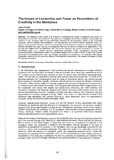| dc.description.abstract | Since the collapse of the USSR, the USA and the international order have remained unopposed. Nevertheless, contemporary China has become a regional military power, a global economic power, and a significant voice in the international system as a result of its economic expansion.
In order to better understand this phenomenon and comprehend the intricate notions of power that are linked with China’s rise, it is crucial to incorporate empirical evidence and apply theoretical frameworks to analyze the dynamic relationship between an emerging China and the United States of America. These two nations, both significant global powers, are experiencing a growing rivalry, making this case particularly noteworthy.
The balance and distribution of power, the amount of power each state wields, and the factors that affect a state's power—most notably hard indicators of power like geography, population, resources, military power, economy, and technology—all have a significant impact on the analysis of power. These elements are closely associated with the political capabilities of states and have the potential to significantly shape the nature of power at both national and international levels.
This dissertation aims to shed light on how a "rising" China will affect the geopolitical sway of the existing balance of power. To achieve this, the concept of power will be thoroughly analysed, and then an effort will be made to examine how China's rise has affected the geopolitical power of actors like the USA and to determine if there is a possibility for an imminent confrontation between the USA and China as the outcome of this rise.
Power analysis indicates that constructing a believable "victory theory" for either of the two contestants (USA-China) is a challenging task. Therefore, it is anticipated that despite ongoing geopolitical, geo-economic, technological, and ideological competition between China and the USA, they will be compelled to collaborate in addressing crucial matters that align their interests. | en_UK |



